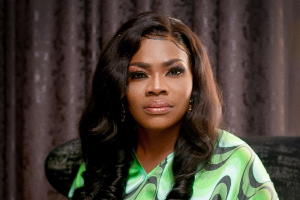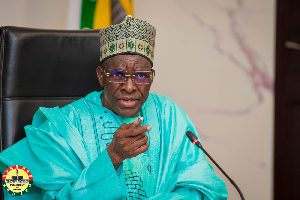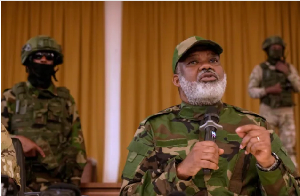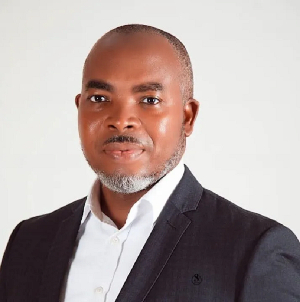Maame Grace, a well-known figure in spiritual and cultural circles, has stirred significant discussion with her recent YouTube editorial, where she addressed the African diaspora's search for spiritual reconnection on the continent.
In her thought-provoking commentary, she cautioned that those travelling to Africa, particularly Ghana, in hopes of experiencing a profound spiritual awakening may be met with disappointment. According to Maame Grace, the ancestral spirits that many seek to connect with may no longer inhabit the lands as they once did.
Central to her argument is the impact of environmental degradation on the spiritual landscape of Africa. Maame Grace highlighted the severe pollution of natural lands and rivers, particularly due to activities like illegal mining, known locally as "galamsey."
She questioned the presence of pure and powerful nature spirits in such degraded environments. "Look at the way galamsey has destroyed our river bodies," Maame Grace stated. "Which marine spirits are going to be living in this?"
Maame Grace went on to provide a striking example, claiming that top Hollywood celebrities, including Beyoncé, have allegedly taken over some of these spiritual deities. According to her, these celebrities are using the deities in a "clean and respectful manner," in stark contrast to the polluted conditions in many parts of Africa.
Her editorial also touched on the broader context of ancestral spirits, the Year of Return, and the spiritual reconnection efforts of the African diaspora. The Year of Return, initiated in 2019, encouraged African descendants around the world to return to Ghana and reconnect with their heritage.
However, Maame Grace questioned whether the ancestral gods and spirits traditionally invoked during these reconnection efforts are truly present and active in modern-day Africa. She pondered whether these deities, known for embodying purity, power, and majesty, would dwell in the polluted and degraded environments of today's Africa.
Beyond environmental concerns, Maame Grace addressed the disillusionment that some members of the diaspora face when they arrive in Africa expecting a deep spiritual connection. Many, she noted, encounter practical difficulties and cultural differences that challenge their expectations.
She expressed skepticism about the authenticity of the spiritual experiences being offered, suggesting that many of the original spiritual entities may have departed. In their place, she warned, there may be lesser spirits or entities that do not offer the same level of guidance or protection.
Throughout her commentary, Maame Grace called for a deeper understanding of what is truly being offered to those seeking to reconnect with their roots. She questioned the integrity of the current spiritual environment in Africa and urged for greater transparency and authenticity in the practices being promoted to the diaspora.
Maame Grace’s editorial has sparked a conversation on the evolving nature of spirituality in Africa and the challenges faced by those seeking to reconnect with ancestral traditions. Her message serves as both a caution and a call to action for those involved in spiritual practices on the continent.
Religion of Monday, 2 September 2024
Source: Kelly Nii Lartey Mensah, Contributor



















